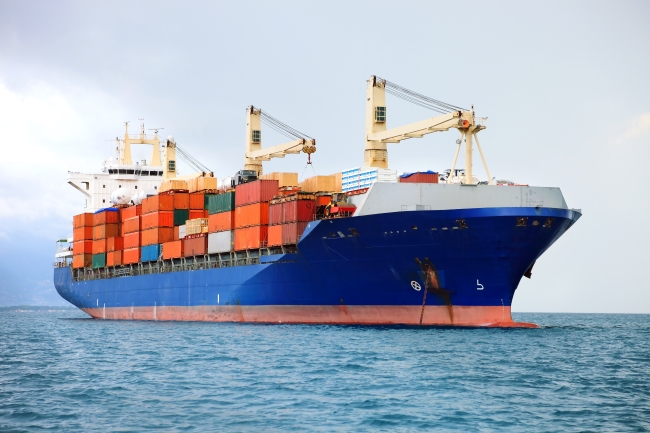
Some of the oldest examples of insurance involve marine coverage for ships and their cargo. International shipping remains risky to this day, with hazards stemming from everything from storms to pirates and war, and insurance coverage continues to be important. Here’s what moving companies need to know about the state of international shipping.
Shipping Is Key to the Global Economy
The International Chamber of Shipping (ICS) says that 11 billion tons of goods are transported by ship every year. That’s equal to 1.5 tons per person in the world. Shipping is a primary mode of transportation for world trade, accounting for 80% of all exports and imports by volume in the European Union. Although air travel may be faster, shipping is the cheapest mode of transportation per ton and leaves a minimal environmental footprint. As the population grows in the coming years, shipping volumes are also expected to increase.
Current Threats to Shipping
The shipping industry is currently facing numerous challenges, including the following:
- Storms: NASA says that extreme storms may increase by 60% by 2100, based on current climate model projections. For ships and ports, tropical storms and hurricanes are a major threat. According to RTI International, the shipping industry could lose $10 billion a year fighting climate change by 2050.
- Pirates: Although maritime piracy has declined in recent years, the latest numbers show it may be rising again. The 2023 mid-year report from the ICS showed an increase in maritime piracy and armed robbery. In the first half of the year, 65 incidents occurred, up from 58 in the first half of 2022.
- Political Conflict: International conflict, such as the Russia-Ukraine war and the Israel-Palestine war, can disrupt trade routes. Recently, Houthis have been targeting ships in the Red Sea, prompting military action from the U.S. and the U.K.
The Impact on Marine Insurance
Recent risk trends have had a notable impact on insurance prices and capacity. S&P Global says the recent attacks on ships in the Red Sea have caused an increase in tanker insurance costs, and additional insurance price hikes are possible.
In addition to the localized risks, other trends have impacted insurance markets far and wide. According to Munich Re, global natural disasters resulted in losses of approximately $250 billion in 2023, $95 billion of which was insured. Investopedia says climate change is a key driver of rising insurance costs. Insurers are facing higher claims, and they’re passing the costs onto policyholders. Furthermore, these costs are expected to continue to climb in the future.
Inflation and supply chain disruption have also increased claims costs. The International Monetary Fund says global inflation reached 8.8% in 2022 and was expected to fall to 6.6% in 2023 and 4.3% in 2024; these levels are still higher than the pre-pandemic level of around 3.5%.
Marine Insurance vs. Cargo Insurance
Rising risks mean that insurance is more expensive, but these risks also make insurance more important. For ship owners and operators, marine insurance provides coverage for the hull. For shippers, cargo insurance provides coverage for their shipments.
Although shippers may not be required to purchase cargo insurance, without it, their shipments may not be protected. The World Shipping Council says an average of 1,566 shipping containers were lost each year between 2008 and 2022. While this represents only a fraction of the total number of shipping containers transported that year, each lost container can represent a major financial loss, and cargo insurance provides valuable protection.
Cargo insurance can also shield shippers from complicated and lengthy General Average procedures. Under the General Average principle, your company could be forced to cover a portion of a loss even if your shipment was not directly impacted. This is an old maritime rule that requires all stakeholders, including shippers, to share losses in certain circumstances. For example, if a ship encounters a storm and needs to jettison some cargo, all stakeholders share the loss. This can be considered fair because the stakeholders who did not lose any cargo benefited from the sacrifice, but it may catch some shippers by surprise. Additionally, determining each shipper’s financial responsibility can be a complex and time-consuming undertaking. Cargo insurance provides a way to make shippers whole quickly.
Is Your Shipment Protected?
Shipping may be the most economical way for movers to ship cargo long distances, but there are risks involved. Cargo insurance can shield your moving company from potential losses. Relocation Insurance Group provides cargo insurance with coverage for all modes of transportation. We also provide real-time quoting and binding and quick and efficient claims settlement. Learn more.
